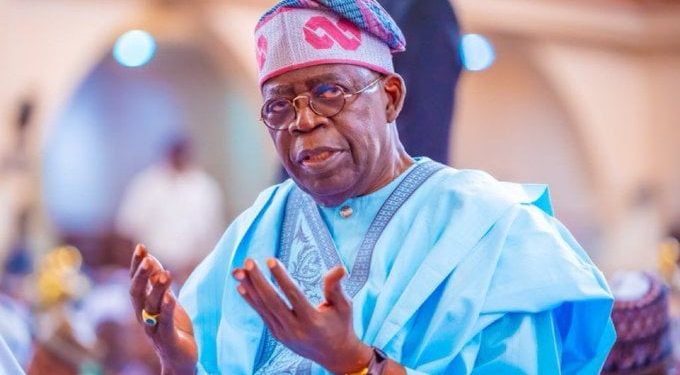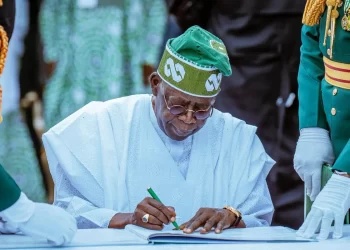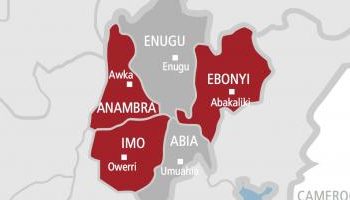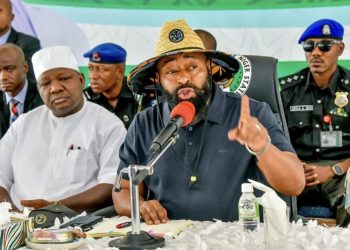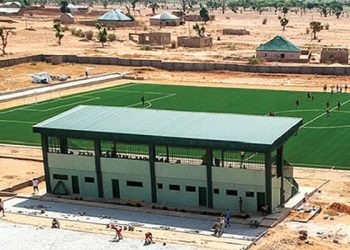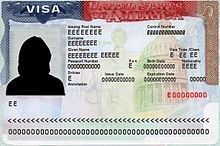President Bola Tinubu appears detached from the people he leads. Despite his self-declared situational awareness of all things Nigerian, some of his officials seem to be shielding him from the harsh realities of the biting hardship in Nigeria. This explains why some of the President’s claims in his 65th Independence Day broadcast on October 1 are being subjected to intense scrutiny.
Virtually all countries have experienced some form of social, economic, and technological progress over the last 65 years, and Nigeria cannot be an exception. However, the last two years have seen a sharp decline in living conditions for most Nigerians.
According to the President, his administration has turned the corner and “the worst is over for Nigeria.” He added that yesterday’s pains are giving way to relief on several fronts. Yet, this assertion seems to be a stretch.
As the President rightly observed, the accurate measure of Nigeria’s success should not be limited to economic statistics alone, “but rather in the food on our families’ tables, the quality of education our children receive, the electricity in our homes, and the security in our communities.”
Currently, these indices remain low in Nigeria. Hence, the worst is not over yet.
Tinubu stated that Nigerians now have access to better education and health care than in 1960. At Independence, he said, Nigeria had 120 secondary schools with a student population of about 130,000. By 2024, that number had grown to more than 23,000 secondary schools—a great leap in 65 years!
He reminded Nigerians that at Independence, the country had only two tertiary institutions: the University of Ibadan and Yaba College of Technology. By the end of 2024, there were 274 universities, 183 polytechnics, and 236 colleges of education, comprising federal, state, and private institutions.
However, the main issue is not the increase in the number of institutions but their ability to fulfil their mandates. Nigerian universities consistently rank low in the Webometrics table. Besides, the quality of output matters greatly. In some public schools, pupils still learn in classrooms without roofs and sit on bare floors.
University staff unions frequently strike over poor pay and inadequate facilities. The Federal Government has failed to honour a N1.2 trillion Memorandum of Understanding with ASUU to revitalise universities since 2009. The true measure of any government’s achievements lies in the quality of life of the people, not merely in numbers.
The health sector tells a similar story. Although there are more health institutions, the quality of healthcare remains poor. Most public hospitals lack basic equipment necessary for diagnosing and treating ailments. The doctor-to-patient ratio is 3.9 per 10,000, far below the prescribed global minimum.
If the healthcare system were functioning well, the Nigerian elite would not be spending between $1 billion and $1.6 billion annually on medical tourism.
In addition, over 60 per cent of Nigerian doctors would not be working abroad, and those remaining would not frequently strike.
It is heartening that foreign reserves have increased to $42.03 billion—the highest since 2019—thanks to forex reforms.
However, the Excess Crude Account is badly depleted, falling from over $2 billion in 2015 to just $535,823.39 in August. Despite lower oil prices, the ECA was as high as $20 billion in 2008.
The drop in the ECA balance in recent years is due to frequent government raids. In an economic recession, Nigeria would normally rely on the ECA, which this government should revive.
The President proudly noted a GDP growth of 4.23 per cent in the second quarter of 2025. His administration also swiftly surpassed its 2025 non-oil revenue target, achieving over N20 trillion by August.
But what about the manufacturing sector? It slowed to 1.60 per cent growth in Q2 2025, with its GDP share dropping to 7.81 per cent from 8.01 per cent in Q2 2024. What efforts have been made to revive the textile industry?
Sadly, many Nigerians rely heavily on imported clothes. In 2024, textile imports cost Nigeria N726 billion, up 92 per cent from the N377 billion recorded in 2023 following the naira devaluation.
While certain macroeconomic indicators are trending upward, the impact on ordinary lives remains questionable. What is the average wage? Can a professor adequately feed a family of six on today’s earnings? The N70,000 minimum monthly wage is a pittance after the naira devaluation.
In 2020, GDP per capita was $2,019.66; by December 2024, it had dropped significantly to $835.49, a 58.6 per cent decline.
High inflation has disrupted everything and left Nigerians in misery. Tinubu celebrated inflation’s decline to 20.12 per cent in August 2025, the lowest level in three years.
In comparison, the inflation rate in the Benin Republic was 1.0 per cent in July, rising slightly to 1.30 per cent in August. The Consumer Price Index there decreased 0.50 per cent in August compared to July.
Although the naira has stabilised somewhat from the volatility of 2023 and 2024, it remains weak.
At the start of the Fourth Republic in 1999, the exchange rate was N21.89 to $1. When Tinubu took office in May 2023, it was about N460.72 to $1. Today, it stands at around N1,500 to $1. This has severely impacted businesses, many of which have closed, resulting in significant job losses.
In the power sector, little has been done to ensure constant electricity as generation remains a dismal 5,000MW, while peers like Egypt do 10 times that, and the national grid continues to collapse. Tinubu has only raised tariffs to bridge government deficits.
Infrastructure development has been suboptimal, despite the President’s claims of expanded transport infrastructure across rail, roads, airports, and seaports. Many federal roads desperately need repairs or complete reconstruction.
In agriculture, Nigeria still imports basic food while exporting raw commodities.
Tinubu’s claim that Nigeria now exports more than it imports is a half-truth. The reality is that many Nigerians cannot afford to import due to prohibitive costs and a high exchange rate. Only a handful can manage it.
The country remains under siege from criminals, although Tinubu asserts that it is winning the war against terrorism, banditry, and violent crimes. He noted that peace has returned to many liberated communities in the North-West and North-East.
The truth is that the government has largely failed to secure Nigerians. Terrorism has surged, especially in the North-East and North-Central. New terror groups like Lakurawa and Mahmuda exemplify this with increasing forays southwards into states like Kwara.
From May 2023 to April 2024, the National Bureau of Statistics reported 614,937 deaths in Nigeria. Between January and March 2025 alone, about 2,000 Nigerians were killed in violent incidents nationwide.
Borno State Governor Babagana Zulum lamented that terrorists now attack and kidnap people almost daily in many communities. Millions have been displaced.
Primarily, it is political officeholders who maintain a good standard of living—perhaps this is what is confusing the President and his speechwriters.
The President should realise that no one grades their own exams. It is futile to benchmark his achievements against the Muhammadu Buhari administration. He should instead compare his administration to that of Olusegun Obasanjo.
Nigeria should benchmark itself against countries like Singapore, South Korea, Malaysia, and Indonesia, which also began their development journey around 1960.
The essence of government is to ensure the welfare of its citizens. Any policy or macroeconomic growth that does not improve the lives of the people is worthless.

